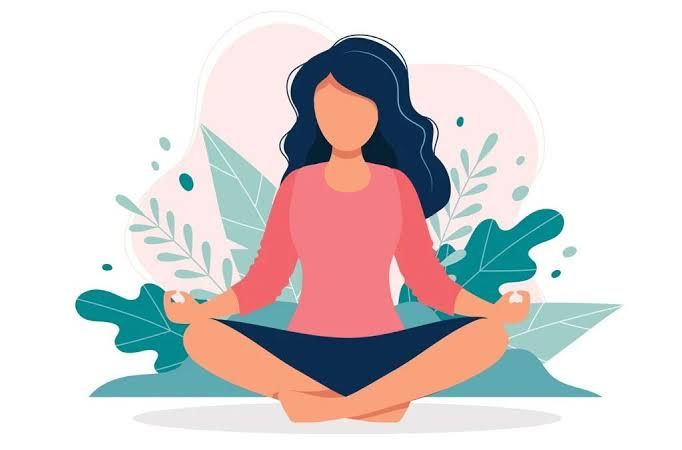The Role of Mindfulness in Relapse Prevention
- Collective Care

- Oct 27, 2025
- 3 min read
By Collective Care Center — Pune
Relapse is one of the hardest parts of recovery. For many people leaving treatment, cravings, stress, and automatic reactions to triggers quietly rebuild the path back to substance use. Mindfulness — the clinical practice of paying purposeful, non-judgmental attention to the present moment — has emerged as a practical, evidence-based tool for reducing relapse risk and strengthening long-term recovery. At Collective Care Center, Pune, we combine mindfulness with yoga, psychotherapy and psychiatric care to build personalised relapse-prevention plans that work for professionals, working adults and families.
What is mindfulness-based relapse prevention (MBRP)?
Mindfulness-Based Relapse Prevention (MBRP) is an 8-week group program specifically adapted for addictive behaviors. It teaches skills such as noticing cravings as passing events, observing thoughts and bodily urges without acting on them, and choosing values-guided responses rather than automatic reactions. MBRP integrates traditional cognitive-behavioral relapse-prevention strategies with mindfulness meditation practices so participants learn both the why and the how of managing triggers.
How mindfulness prevents relapse — the mechanisms
Breaks automaticity. Addiction-related behaviors are often automatic responses to cues. Mindfulness increases awareness of the cue → urge → action sequence so a person can interrupt it. Studies show mindfulness practice reduces the likelihood that urges automatically translate into use.
Reduces craving intensity and reactivity. Mindfulness trains people to observe craving sensations without trying to suppress them, which paradoxically reduces their intensity and the need to act. Recent systematic reviews and meta-analyses report small to moderate reductions in craving and substance-use frequency after mindfulness interventions.
Improves emotion regulation and stress tolerance. Mindfulness strengthens skills for tolerating distress (for example, anxiety or shame) without returning to substances. Improvements in emotional regulation are consistently observed in trials of MBRP and related interventions.
Enhances self-compassion and relapse insight. Mindfulness and related practices cultivate non-judgmental self-awareness, reducing shame and catastrophic self-judgment after slips — factors that otherwise increase the likelihood of full relapse.
Practical skills taught in MBRP (what participants actually learn)
Urge surfing: noticing the physical rise and fall of a craving instead of acting on it.
Body-scan & sitting meditation: building presence and interrupting rumination.
Mindful movement / gentle yoga: reconnecting with the body and reducing stress reactivity.
Trigger mapping: identifying high-risk people, places and emotions with non-reactive awareness.
Relapse planning with values: pairing acceptance skills with concrete behavioral strategies (e.g., social support, coping scripts).
These are skills that translate into everyday life — at work, in social settings, and when stress hits unexpectedly.
Who benefits most?
Mindfulness-based relapse prevention is a flexible adjunct that benefits many groups, including:
Individuals finishing residential treatment who want tools to sustain gains.
Working professionals who need portable, brief practices to manage stress and cravings during busy days.
People with co-occurring anxiety or depression, where mindfulness can help with emotion regulation alongside psychiatric care.Clinical evidence supports MBRP as part of “psychiatric and therapeutic rehab centre” offerings and within “rehabilitation for professionals and working adults.”
How we deliver it at Collective Care Center, Pune
At Collective Care Center, Pune, our relapse-prevention pathway blends evidence-based therapy with holistic supports:
Personalised rehab plans at Collective Care: we assess relapse risk, co-morbid mental health conditions, work and family stressors, and design a package that may include MBRP groups, CBT, medication management and aftercare planning.
Holistic rehabilitation with yoga and meditation: daily mindful movement and guided meditation sessions taught by certified instructors.
Certified counsellors for addiction recovery and rehabilitation with clinical psychologists collaborate with psychiatrists to provide integrated care.
Evidence-based therapy for addiction (MBRP, CBT, motivational interviewing) forms the spine of our approach; yoga, breathwork and trauma-informed practices provide complementary support.
Tips to start practicing mindfulness today (simple, research-backed)
Start small: 5–10 minutes of sitting practice daily is better than an infrequent long session.
Use urge-surfing: when a craving appears, name it (“craving”), notice where it’s felt in the body, and watch it rise and fall for 3–5 minutes.
Pair practice with routine: practice before/after daily activities (e.g., morning tea, commute) to build habit.
Combine with movement: short mindful walks or gentle yoga can be especially helpful for people who find sitting difficult.
Stay connected: join a group or a therapist-led MBRP program for accountability and guided learning.
Final word
Mindfulness gives people practical, evidence-based tools to see cravings clearly, tolerate distress, and act in ways that align with recovery goals. When combined with psychiatric care, psychotherapy and movement practices like yoga, it becomes a powerful component of holistic rehabilitation with yoga and meditation. At Collective Care Center, Pune, we emphasize personalised rehab plans, delivered by certified counsellors, clinical psychologists, and psychiatrists, so your relapse-prevention plan fits your life.


